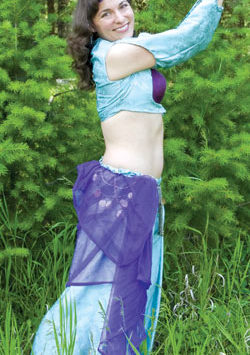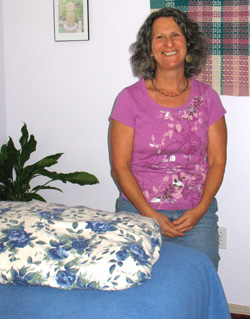TONASKET – The CONEVyT program, for native Spanish-speakers struggling to learn English, began again Jan. 7 at a portable on Tonasket School District grounds.
CONEVyT (pronounced Cone-aye-Veet) is a Spanish acronym for Mexico’s Consejo Nacional de Educación para la Vida y el Trabajo (the National Council for Education for Life and Work). It is a national program designed by the Mexican government to help educate people in Spanish first, before moving them into an English program, said program director Martha Bosch.
Local partners include Central Washington University, Wenatchee Valley College, Heritage College and the Tonasket School District, she said.
Wenatchee Valley College pays the salaries of two teachers, CWU provides a computer lab and the Tonasket School District provides the physical portable.
Another partner, though silent, is Community Schools of Tonasket, which also uses the portable and is unable to hold their classes there when CONEVyT is in session.
CONEVyT uses a computer portal to work with students on an individual level, said Bosch. All students are welcome, from beginning English speakers to those with a solid grasp of the language, she said.
“We can start working with them right where they’re at,” she said.
Angela Lorz is one of two teachers in the program. In early December, she attended the state CONEVyT conference in Yakima and made a presentation about the unique approach the Tonasket program has, Bosch said.
The Yakima conference was attended by educators across the U.S. and in Mexico, according to a state publication. Jorge C. Herrera, CONEVyT coordinator for the state and the Yakima School District, chaired the program.
“We have a unique portal,” Lorz said. The portal is through Wenatchee Valley College and uses a unique ESL course to utilize CONEVyT, she said. A portal is the online service that CONEVyT uses to teach students. It is sponsored through the Mexican government.
Up to 45 people register for the class per semester, said Lorz. There are more then 100 people registered online with the plaza, she said.
The plaza is a secure online site that anyone can use, she said. A portal is the real-time, real-life extension of the plaza, lead by a teacher.
The class takes place at a portable on Tonasket School grounds, at the top of Fourth Street. The portable has about 30 computers donated by Central Washington University and maintained by two student volunteers, Bosch said.
Anyone can register for the class, which counts as a credit through Wenatchee Valley College. Completion of the class and an accompanying certification leaves students with a GED and strong English-language skills or fluency.
Though the GED is legally through the Mexican government, Lorz said a GED in one country is valid in any other.
“If a French exchange student comes to Wenatchee Valley College with their GED, it’s still valid here,” she said.
The course focuses on educating people in Spanish because research has shown that learning content and literacy skills in a person’s primary language facilitates their learning of a second language, said Lorz. Knowing what verbs, adjectives and parts of speech are in Spanish helps them with the English counterpart, according to research.
The course occurs four nights a week, but students don’t have to come to every class.
“That’s the nice part about the schedule,” Lorz said. “We can accommodate lots of people and suit whoever’s needs we need to. We have our Monday-Wednesday people, and our Tuesday-Thursday people,” she said.
The class registration is open and students can show up at any time through the semester, Lorz said. If a student shows up late – in the last few weeks of the course – their registration will be held until the next semester begins, she said.
Students in the course come from Oroville, Loomis, Tonasket, Omak and other local towns, said Lorz.
While there is a tuition involved for the course, it can be waived if parents have a student involved in GEAR-UP through the school or for other reasons, Lorz said.
GEAR-UP, or Gaining Early Awareness and Readiness for Undergraduate Programs, is a program headed by Bosch in the Tonasket school district.
“Martha has been so instrumental in this,” said Lorz. “She brought the program to the attention of Wenatchee Valley College – she got this started.”
The program exists in eight states and includes several plazas, Lorz said.
“It’s growing by leaps and bounds,” she said.
Lorz and Michael Goudeau teach the class four nights a week. It has been going on for more then a year, said Bosch.
CONEVyT is a Mexican national system offering education and training opportunities for teenage and adult Spanish speakers in Mexico, according to information found online. The Mexican government created the program to meet the needs of people there who had not completed school beyond the sixth grade. Early on, the program also focused on serving Hispanic immigrants in the United States. Between Mexico and the United States, there are more then 150 programs to serve that population.
However, according to a Northwest Education website, www.nwrel.org, only a few states have tapped the true potential of the program, including using their own academic portals and computer systems to educate people. Washington State is one that has. The Washington program is based out of Yakima, according to the website. Washington has its own portal, separate from Oregon, California and Mexico. There are 70 plazas on the Washington portal.






